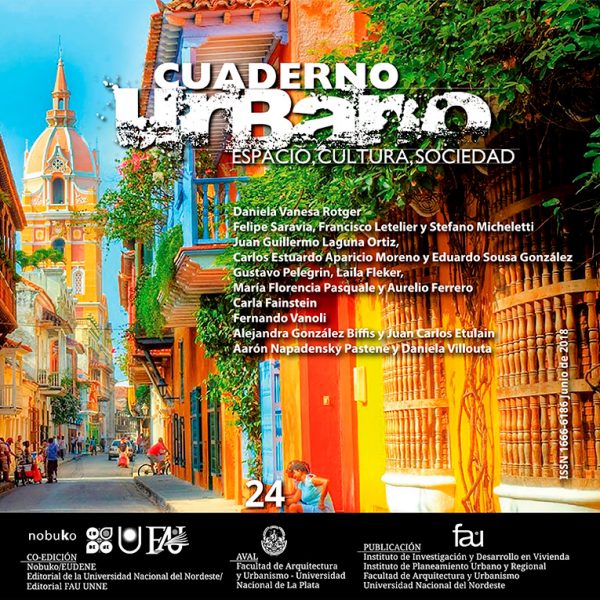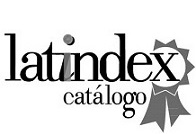Land occupation conflicts and corporate strategies in terms of corporate social responsibility (CSR): a reconsideration of categories of analysis.
DOI:
https://doi.org/10.30972/crn.24242922Keywords:
Corporate social responsibility (CSR), territory, social spaceAbstract
This paper will analyze some CSR practices aimed at reducing land occupation conflicts between the private sector and the community, in order to reveal the multiple investment strategies developed during a certain historical period. It will begin with the characterization of a housing program developed within the framework of the CSR programs of a multinational cement company. The literature on CSR, related to management studies, does not recognize the environmental and urban aspects of social conflicts where business activity is carried out. On the contrary, the ethical and philanthropic dimensions of their activity are directed toward a unilaterally chosen public. It is therefore hypothesized that the recognition of the conflictive character of the company as a local actor in the allocation of land uses is replaced by a policy aimed at influencing the management of local conflict without necessarily mitigating the impacts produced by their business activitiesDownloads
References
BOURDIEU, Pierre (1988) Cosas dichas. GEDISA, Buenos Aires.
BOURDIEU, Pierre (1988) La distinción. Crítica y bases sociales del gusto. TAURUS, Madrid.
BOURDIEU, Pierre (2014) Las estrategias de la reproducción social. Siglo XXI Editores, Buenos Aires.
CÁRITAS ARGENTINA (2015) La dignidad también se construye. En Huellas de Esperan¬za. Julio de 2015. (En línea) https://www.caritas.org.ar/Boletin_Digital/2015/2015-07/Hue¬llas-Web.html. (Consultado: 11-02-2016).
CARROLL, Archie (1991). “The pyramid of corporate social responsibility: toward the moral management of organizational stakeholders”. En Business Horizons, July–August.
CARROLL, Archie y SHABANA, Kareen (2010) The Business Case for Corporate Social Res¬ponsibility: A Review of concepts, research and practice. En International Journalof Management Reviews, 12 (1).
COMUNIDAD RSE (7 de noviembre de 2016) Holcim inauguró el proyecto Pulso Hábitat en Jujuy (En línea) http://comunidadrse.com.ar/holcim-inauguro-el-proyecto-pulso-habi¬tat-en-jujuy/ (Consultado: 22-05-2017).
FREEMAN, R. Edward (2004). “Ethical leadership and creating value for stakeholders”. En: Robert A. Peterson y O. C. Ferrell (ed.) En: Business Ethics. M. E. Sharpe, Armonk, NY, London.
FREEMAN, R. Edward y REED, David (1983). “Stockholders and Stakeholders: A New Perspective on Corporate Governance”. En California Management Review, N.º 25 (3).
GOBIERNO DE JUJUY (19 de julio de 2017) “Entregaron en Puesto Viejo viviendas del plan Cáritas”. (En línea) http://prensa.jujuy.gob.ar/2017/07/19/se-entregaron-en-puesto-viejo-viviendas-correspondientes-al-plan-caritas/ (Consultado: 20-07-2017).
GONZÁLEZ ESTEBAN, Elsa (2007). “La teoría de los stakeholders: un puente para el desarrollo práctico de la ética empresarial y de la responsabilidad social corporativa”. En VERITAS, Revista de Filosofía y Teología, N.º 2 (17), Valparaíso.
GUTIÉRREZ, Alicia (2011). “Estrategias de reproducción social. Las microprácticas y la política social. Capital y redes sociales”. En: Valdés Paz, J. y Espina, M. (eds.) América Latina y el Caribe: La política social en el nuevo contexto - Enfoques y experiencias UNESCO, Montevideo.
GUTIÉRREZ, Alicia y MANSILLA, Héctor (2015). “Clases y reproducción social: el espacio social cordobés en la primera década del siglo XXI”. En Política y Sociedad. Vol. 52, Núm. 2, Madrid.
INSTITUTO ARGENTINO DE RESPONSABILIDAD SOCIAL EMPRESARIA (IARSE) (2007) Indicadores de Responsabilidad Social Empresaria 2007/2008. Mayo de 2007, Córdoba.
INSTITUTO NACIONAL DE ESTADÍSTICAS Y CENSOS (2010) Censo Nacional de Población, Hogares y Viviendas. Disponible en http://www.indec.gob.ar/(consultado: 15-09-2016).
JUJUY AL MOMENTO (20 de marzo de 2012) Puesto Viejo: pequeños productores contra Minetti. (En línea) http://www.jujuyalmomento.com/post/6047/puesto-viejo-pequenos-productores-contra-minetti (Consultado: 13-12-206). (21 de marzo de 2012) “Productores se reunieron con Cosentini”. Disponible en Web: http://www.jujuyalmomento.com/post/6068/ puesto-viejo-productores-se-reunieron-con-cosentini (Consultado: 03/12/2016).
KURUCZ, Elizabeth, COLBERT, Barry y WHEELER, David (2008). “The business case for cor¬porate social responsibility”. En: Crane, A., McWilliams, A., Matten, D., Moon, J. y Siegel, D. (ed.), The Oxford Handbook of Corporate Social Responsibility. Oxford: Oxford University Press.
MCGUIRE, Joseph (1963) Business and Society. McGraw-Hill, New York.
MINISTERIO DE INFRAESTRUCTURA, SERVICIOS PÚBLICOS, TIERRA Y VIVIENDA DE JUJUY, SECRETARIA DE ORDENAMIENTO TERRITORIAL Y VIVIENDA (2016) Guía para adjudicación de soluciones habitacionales. Noviembre. (En línea) http://secotyv.jujuy.gov.ar/ sorteos/informacion.html. (Consultado: 22-02-2017). (2017) Sorteo de lotes en Puesto Viejo (En línea) http://secotyv.jujuy.gov.ar/noticias/94-noticia-20170831.html (Consultado: 01-09- 2017).
PARTIDO COMUNISTA REVOLUCIONARIO (marzo de 2012) Situación de tierras de la empresa de cementera ex Minetti. (En línea) http://www.pcr.org.ar/nota/lucha-popular/puesto-viejo-provincia-de-jujuy. (Consultado: 22-03-2016).
PÍREZ, Pedro (1995). “Actores sociales y gestión de la ciudad”. En Ciudades N.º 28, RNIU, México, octubre-diciembre.
SANTANDREU, Alain y GUDYNAS, Eduardo (1998) Ciudadanía en movimiento. Participación ciudadana y conflictos ambientales. CLAES, FESUR y Ediciones Trilce, Montevideo.
SPECTOR, Bert (2008). “Business responsibilities in a divided world: the cold war roots of the corporate social responsibility movement”. En Enterprise & Society, N.º 9.
Downloads
Published
Issue
Section
License
CUADERNO URBANO sustains its commitment to the Open Access policies for scientific information, on account of the fact that both scientific publications and public funded research must circulate freely on the Internet and without restrictions.
CUADERNO URBANO ratifies the Open Access model in which the contents of scientific publications are available in full text free of charge on the Internet, without temporary embargoes, and whose editorial production costs are not transferred to the authors. This policy proposes breaking down the economic barriers that generate inequities both in access to information and in the publication of research results.





.jpg)








